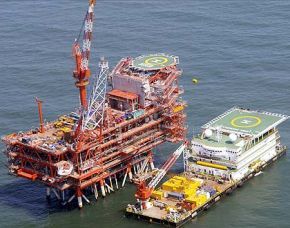Customers of gas supplied by Reliance Industries (RIL) from its D6 block in the Krishna-Godavari basin (KG-D6) are likely to henceforth be asked to sign a gas sales purchase agreement (GSPA)) on an annual basis, compared to the current GSPA, signed in 2009 for five years.
 Meanwhile, the Election Commission of India is to decide this week on whether to allow an earlier government decision on doubling the sale price of domestically produced natural gas.
Meanwhile, the Election Commission of India is to decide this week on whether to allow an earlier government decision on doubling the sale price of domestically produced natural gas.
It would also decide if RIL should be allowed the same benefit.
The current supply contracts will be over by the end of the coming week.
The Cabinet Committee on Economic Affairs had on December 19, 2013, decided to let RIL benefit from the new gas prices, provided the company furnished a bank guarantee to cover its liability if earlier charges of hoarding supply from KG-D6, under investigation, were later proved.
The Rangarajan formula, which led to the price doubling, takes the average of the US, Europe and Japanese hub prices and averages these with the net-back price of imported liquefied natural gas (LNG), to give a new sale price of domestically-produced gas.
The new pricing is to be revised quarterly, taking into account these same three hub prices and the LNG import price.
The new prices are likely to be in the range of $8.2-8.4 per unit.
The Fertilizer Association of India has already written a letter to its ministry, raising concerns about the proposed GSPA.
Gas accounts for nearly 80 per cent of the production cost of urea. An increase of $1 per mBtu in gas prices translates to an enhanced cost of production of about Rs 1,369 per tonne.
For 18 million tonnes of urea produced from gas, a $1 per mBtu price increase translates to an increase in cost of Rs 2,465 crore (Rs 24.65 billion).
Last week, the fertiliser ministry had raised objections regarding plans to sign GSPA on a quarterly basis. Sources said the decision to sign this on a annual basis was taken after this.
A RIL official said,“Since the prices are going to be decided on a quarterly basis, we wanted the (new) GSPAs to be signed at least annually.
Fertiliser companies have raised some issues regarding the current GSPA. The prices are going to be decided by the government based on the Rangarajan formula only. It would be the same for all companies, as cleared by the cabinet."
According to a news agency report, in its new GSPA, RIL had proposed to charge the government- fixed rate for natural gas on a gross calorific value (GCV) basis, instead of the current practice of billing $4.205 per million British thermal units on net calorific value (NCV).
The report said one GCV equals 0.9 NCV and so, on a like to like basis in billing urea plants, the new price of $8.3 per mBtu on GCV would mean an actual rate of $9.13 on an NCV basis.
Denying this, the RIL official said, “The Rangarajan panel report itself is based on a GCV system and the prices are yet to be decided. It would be equal for all customers.”












 © 2025
© 2025